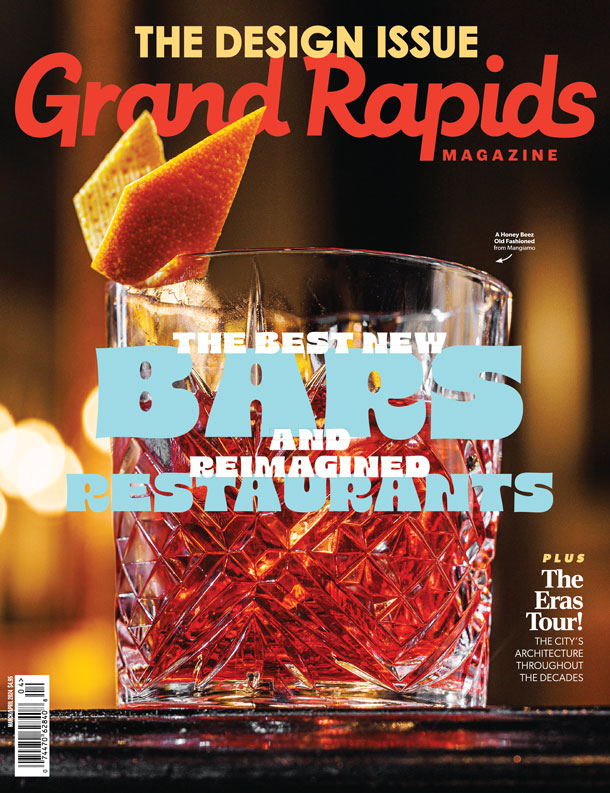While Michigan isn’t known as a wine hotspot, some wineries like Brengman Brothers in Michigan wine country (Traverse City) are out to show that Michigan wines can be as good those from the Old World or Napa Valley. Having just opened up a tasting room in Grand Rapids earlier this year, we chatted with their winemaker, Maggie Thompson, to learn more about their wine and the blossoming Michigan wine culture.
She noted that people often don’t realize that Traverse City is on the 45th parallel, alongside other well-known winemaking regions in France, Italy, and Croatia. Brengman Brothers is out to prove that great American wines aren’t all from California.
Thompson graduated from California Polytechnic State University’s wine & viticulture program and interned at Brengman Brothers before taking on the mantle as resident winemaker. For one winemaker, it’s an alarmingly large amount of wines to oversee. Between three vineyards, Brengman Brothers grow 14 different varieties of grapes. And, for her first vintage, Thompson is set to produce more than 15 wines, including a Pinot Noir Rosé, a Chardonnay fermented in a concrete egg (an old-world style of fermentation) and an assortment of Rieslings.
Her goal is to create natural wines (with no additives) that are “approachable, good wines people can enjoy that are accurate to the region.”
Unlike warm regions like California, Michigan is a cooler climate, and as such, whites like Riesling grow well.
“We’re able to grow grapes with really nice flavors even without as much heat to ripen,” she said. “In the summer, we have long days of ripening – the sun rises early and sets at 9 p.m. on the longest days. The long sun exposure is important when you don’t have the heat.”
Because Northern Michigan’s summer temperature, weather and precipitation levels can vary from year to year, the grapes and resulting wines can be different. Rather than trying to make each vintage taste the same, Thompson said that they stay true to the harvesting year. In doing so, you can expect some variation across vintages.
The weather and location can help the vineyards, too. “As we’re on the Lake Michigan coast, we have a lot of wind that keeps everything from getting mildewy,” said Thompson. “It’s more temperate than the rest of the Midwest and the extra layer of snow works as an insulator for the vines during the winter.”
The grapes are farmed organically, and they don’t use any additives in the winemaking process. You’ll know their wines from their medium/medium-high acidity level (which allows for their white wines to age well) and fruit-forward notes, along with a more moderate level of alcohol than what you’d get from stereotypical California wines.
“There’s been a big shift in Michigan; people are wanting to know more about the wine they’re buying and how it’s made,” said Thompson. “While Michigan is known for sweet whites, people are also looking for drier wines. This allows us to stick to varieties we can grow well and an old-world style of winemaking for really high-quality wines.”








Facebook Comments